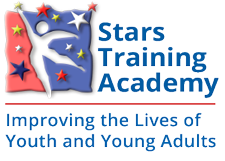The TIP Model® Funding Study & Brief Report will provide you with:

- How six TIP Model® sites in different states are using various funding mechanisms and partnerships to provide an array of services for youth and young adults.
- Five of the most important TIP Model funding sources used to sustain their programs.
- A detailed list of the advantages and disadvantages of each funding method we studied.
- A Strategic Planning and Advocacy Section along with helpful resources.
What This Funding Study Includes
Providers typically have needed to braid revenue sources (e.g., Medicaid, commercial insurance, grants, donations), and develop partnerships (e.g., cross-system, community entities) to provide programs for transitioning youth and their families.
This report describes how TIP Model programs have been sustained through:
- Certified Community Behavioral Health Clinic (pg. 6)
- Medicaid (pg. 8)
- Value-Based Care (pg. 10)
- Commercial/Private Insurance (pg. 11)
- County, State & Federal Grants (pg. 12)
- Community Partnerships (pg. 13)
The report concludes with Strategic Planning and Advocacy Suggestions for effectively sustaining and growing TIP Model programs, including contact information for nationally recognized experts in mental health program funding and operation, and resources for effective grant and contract proposals.

Need help navigating the funding maze to start or expand a transition-to-adulthood program?
Our consultants have extensive experience and expertise in initiating, funding, operating, and sustaining TIP Model programs, and associated programs related to vulnerable young people with extensive histories of chronic trauma, out-of-home placements, juvenile justice, teen mother programs, mental health, and first episode psychosis treatment. These seasoned professionals are available via consultancy.

Want help in preparing a grant or contract?
The Stars Training Academy offers a 25-page grant preparation boilerplate designed to assist leadership at agencies, counties, or states to prepare grants or proposals for TIP Model implementation. This is free to those who plan to contract with SBHG for consultation, training, and implementation services.
Contact Joseph Solomita, Managing Director, to explore solutions to TIP Model implementation, expansion, & sustainability.



